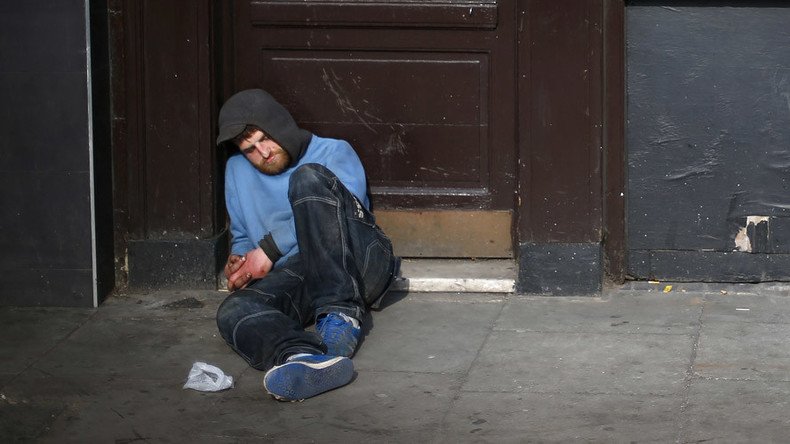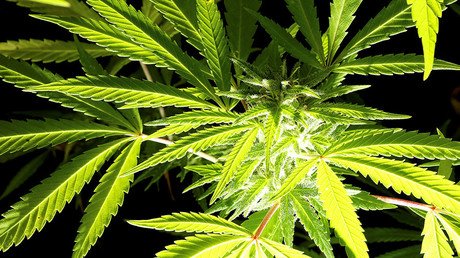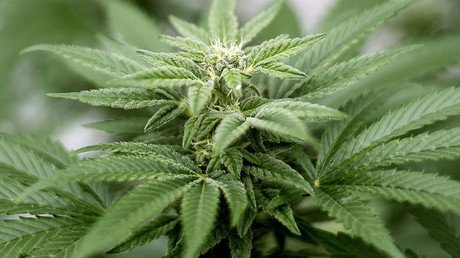‘In a trance’: New database to record ‘zombie’ effects of illegal designer drugs

A national database listing the effects of so-called ‘zombie’ drugs has been created for doctors to swiftly detect any new kinds of synthetic narcotics arriving on the market.
The Report Illicit Drug Reaction (RIDR) website, which will feature urgent clinical reports, will allow doctors to keep constantly up to date with new psychoactive substances (NPS) and relevant treatments.
The database is a platform where doctors can report symptoms deriving from illegal synthetic drugs, as well as receive advice on how to deal with side effects resulting from new substances which have been on the market for just a few hours.
It is hoped the new database will alleviate the pressure on A&Es dealing with “tricky” cases during the weekend.
Dr Sarah Elise Finlay, an emergency medicine specialist at Imperial College Healthcare NHS Trust, said: “The information and advice provided by this new system will ultimately ease some of the burden and stress of managing those tricky overdose and poisoning cases in the early hours over the weekend.
“Emergency services are facing significant pressure, which is why we’ve made the RIDR system as easy as possible.”
Up to 3 percent of people aged between 16 and 24 last year made use of NPSs, which were formerly known as ‘legal highs’ before being outlawed in May 2016.
Dr Owen Bowden-Jones, who is leading the project, said the national database would allow doctors in the UK to be at an advantage in determining the treatment required for drug users.
“It will allow us to build a national picture of the harm from drug use that can be fed back to the frontline clinicians very quickly,” he said, according to the Telegraph.
There has been increasing concern over the use of psychoactive substance such as ‘Spice,’ which is reportedly cheaper than crack or heroine but physically and psychologically more addictive.
The news follows reports at the beginning of the month that a variant of ‘Spice’ being sold in Manchester is making drug users fall into a ‘zombie’ state, where they lose total awareness of their surroundings.
Robert Ralphs, senior lecturer in criminology at the Manchester Metropolitan University and an expert on the drug, was reported saying in the MailOnline: “[Spice] has the physically addictive qualities of heroin and the psychologically addictive qualities of crack.”
There have also been reports of such ‘zombie’ drug effects in Wrexham bus station, Wales.
According to bus driver Gavin Rodda, ‘zombie-like’ drug addicts have been taking over his workplace for the past two years.
Drug addicts in Wrexham back the claim that such substances are cheaper than Class A drugs such as heroin and cocaine.
They claim ‘Black Mamba,’ another psychoactive substance which, like ‘Spice,’ consists of synthetic cannabinoids, reportedly costs £5 (US$6.20) a gram, less than heroine, crack cocaine and even cigarettes.
Creator's warning
Organic chemist John Huffmann, who researched the impact of cannabis on the human brain during the 1990s, was the first one to develop synthetic cannabis when he created the JWH-018 compound back in 1993.
Although Huffmann has warned that synthetic cannabis is unfit for consumption, drug dealers have developed the scientist’s compound to produce cheap and mass-produced synthetic drugs.
During an interview with ABC News, Huffman warned people to stay away from the JHW compound as it does not "hit the brain in the same way as marijuana, and that’s why it’s dangerous”.
The scientist, however, has called on marijuana to be legalised as there is "scientific evidence" that it is not a "particularly dangerous drug”.














